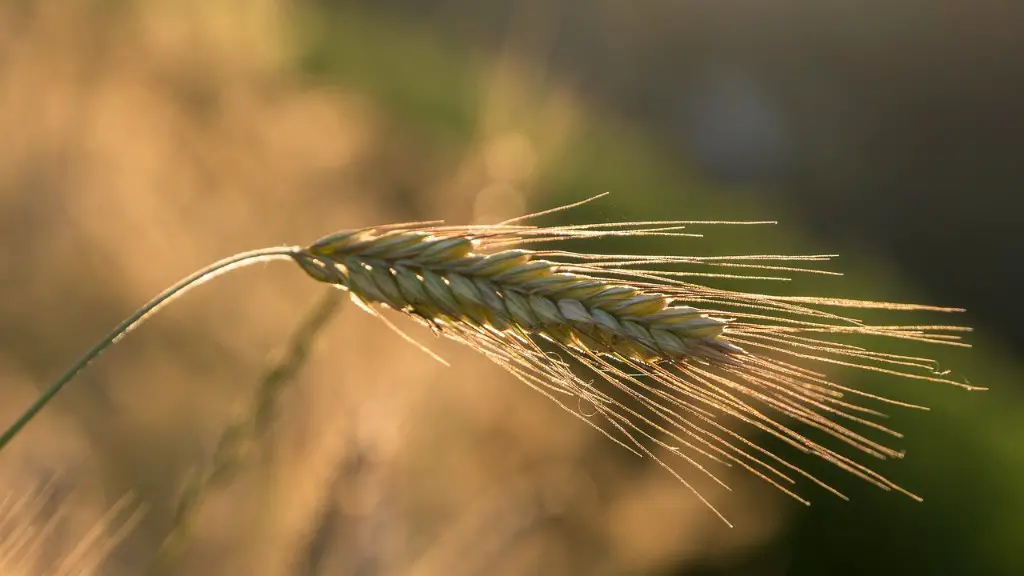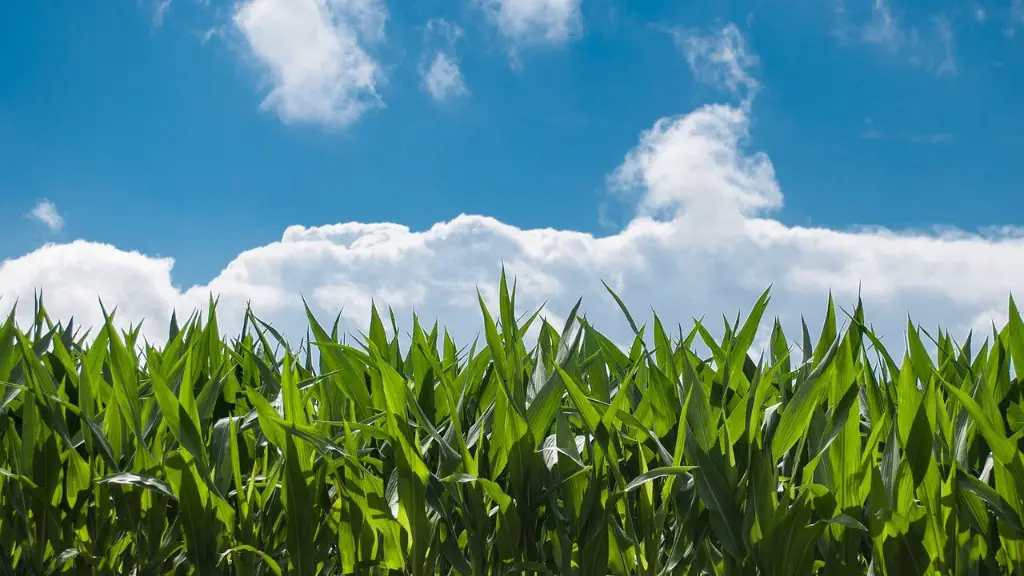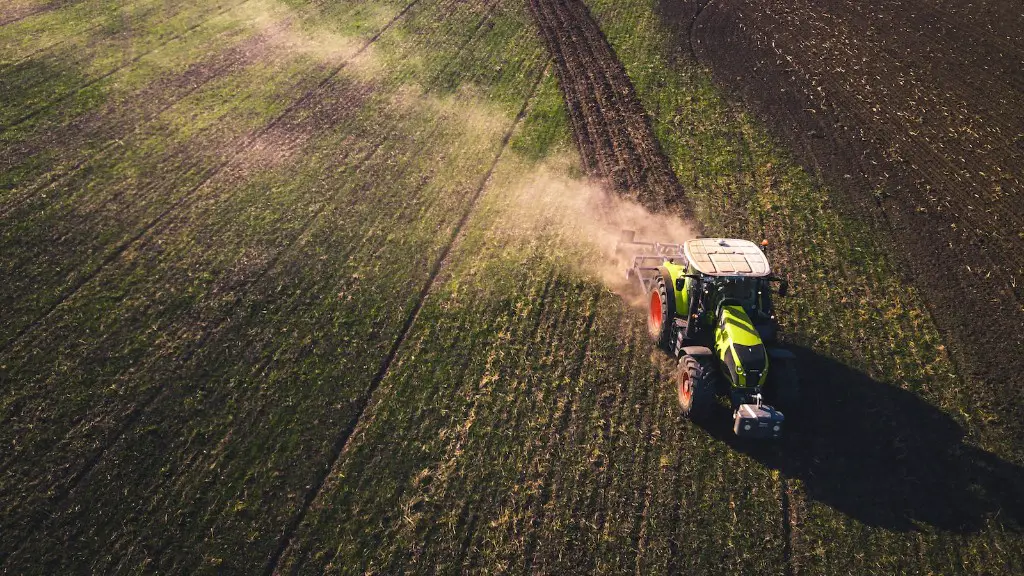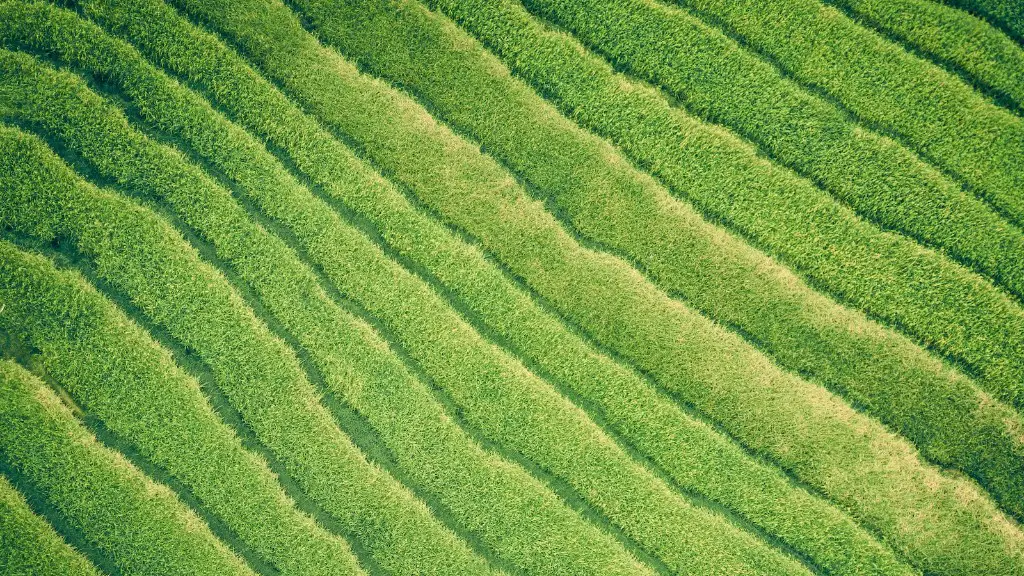The discovery of agriculture was one of the most important events in human history. Agriculture allowed for the domestication of plants and animals, which led to the development of civilizations. Agriculture allowed for the growth of cities and the rise of civilizations. Agriculture allowed for the growth of food surpluses, which allowed for the development of trade and commerce. Agriculture allowed for the growth of populations, which led to the development of cultures and societies.
The discovery of agriculture was important because it allowed humans to domesticated plants and animals, which led to the development of civilizations. Agriculture allowed for the growth of cities and the rise of civilizations. It also allowed for the domestication of plants and animals, which led to the development of new technologies and the advancement of civilizations.
Why was agriculture a turning point in history?
The discovery of how to plant seeds and domesticate animals was a huge turning point in human history. No longer did people have to wander around in search of food – they could now settle down in villages and towns. This led to a huge increase in population, as well as the development of civilizations.
Agriculture is a vital part of any local community. It provides food for residents and contributes to the economy through job creation and tax revenue. In order for agricultural operations to function properly and continue to thrive, they need access to support systems and facilities (infrastructure). This infrastructure includes things like roads, bridges, and irrigation systems. Without it, agricultural operations would be much more difficult to maintain.
What impact does agriculture have on human society
Agriculture plays an important role in our economy and in our communities. It provides jobs and economic growth, and it also provides opportunities for community events and activities. Farmers markets are a great way for smaller farmers to interact directly with consumers, and they provide a valuable service to our communities. Thank you for supporting agriculture!
Agriculture has led to many important changes in human history. Perhaps the most significant change is that it allowed humans to settle down in one place, instead of being nomadic. This allowed for the growth of cities and the rise of civilizations. Agriculture has also had a profound impact on the environment, as it has led to the clearing of large tracts of land for farming.
What are 5 reasons why agriculture is important?
The main source of raw materials to major industries such as cotton and jute fabric, sugar, tobacco, edible as well as non-edible oils is agriculture. Moreover, many other industries such as processing of fruits as well as vegetables and rice husking get their raw material mainly from agriculture. In this way, agriculture provides the raw material for many industries which are the backbone of our economy.
The major importance of agriculture is that it is the primary source of food and livelihood for the majority of the world population. It is also a key sector in the economy of many countries. Agriculture provides raw materials for industries, such as textile, leather, and wood products. It also provides employment opportunities for a large number of people. In addition, agriculture is a major source of income for many small-scale farmers and rural communities.
What is the most important agriculture?
As of 2016, cow milk is the top agricultural product in 37 countries, while wheat is the top agricultural product in 14 countries. Corn is the most produced crop globally with 11 billion tons, followed by wheat with 7609 million tons and rice with 7567 million tons. In terms of value, the top three agricultural products in the world are coffee, maize, and wheat.
While agriculture can have negative impacts on the environment, it can also have positive impacts. Agriculture can trap greenhouse gases within crops and soils, or mitigate flood risks through the adoption of certain farming practices. These positive impacts can help offset the negative impacts of agriculture, and help to make agriculture more sustainable.
What are three impacts of agriculture
Agriculture can have a big impact on the environment, both positive and negative. It can lead to soil erosion, water pollution, climate change, and deforestation.
The agricultural revolution was a time when humans began to domesticated plants and animals, which led to a number of consequences. One of these was an increased dependence on the land, which in turn led to fears of scarcity and societal inequality. The agricultural revolution also led to a decline in nutrition and an increase in infectious diseases contracted from domesticated animals.
Was the development of agriculture good for humans?
The agricultural revolution was a time of great change for humans. For the first time, people were able to produce more food than they could actually eat. The extra food provided by agriculture meant that some people did not have to spend their time gathering food. This period was a time of great change for humans.
Agriculture was the primary livelihood for 90% of the population in Colonial America, and most towns were shipping points for the export of agricultural products. Most farms were geared toward subsistence production for family use. However, some commercial farming did occur, particularly in the southern colonies. This commercial activity was usually focused on cash crops such as tobacco, rice, and indigo.
Why was agriculture considered the most important
Out of agriculture, cities and civilizations grew. Agriculture allowed for the domestication of plants and animals, which led to a increased food production. This, in turn, led to a population boom – from some five million people 10,000 years ago, to more than seven billion today.
Agriculture plays a vital role in human existence, from providing food and raw materials to industries, to developing communities. Agriculture always takes the lead in terms of its highest contribution to human existence. Without agriculture, human beings would not be able to survive.
What is the most important agricultural invention?
A tractor is an essential piece of equipment on any farm. They help farmers increase productivity and efficiency, and can be used for a variety of tasks. Tractors have come a long way since their early days, when they were powered by steam engines. Today, they are much more powerful and versatile, and can be used for a wide range of tasks on the farm.
1. It’s the main source of raw materials
2. It’s important to international trade
3. It plays a big role in a nation’s revenue
4. It provides employment
5. It’s crucial to a country’s development
6. It can help heal the environment
7. It goes hand-in-hand with war
8. It helps to improve a nation’s image
9. It’s a big contributor to the GDP
10. It provides food security
What are 3 benefits of the agricultural revolution
The Agricultural Revolution was a period of significant agricultural development that occurred during the 18th and 19th centuries. It was linked to such new agricultural practices as crop rotation, selective breeding, and more productive use of arable land. These innovations allowed for increased food production, which in turn led to population growth and urbanization. The Agricultural Revolution had a profound impact on the world economy and changed the way that people live and work.
The 2nd Agricultural Revolution was a time of great advances in food production. This led to better diets, longer life spans, and an increase in population. As population increased, so did the pool for workers in industry. Since most of these jobs existed in cities and new factory towns, mass migration to urban areas began to unfold. This had a major impact on the social and economic Structure of society.
Final Words
The discovery of agriculture was important because it allowed humans to cultivate and harvest crops, which led to the domestication of plants and animals. Agriculture also allowed for the development of civilizations and the growth of cities and states.
The discovery of agriculture was one of the most important steps in the history of human civilization. Agriculture allowed for the domestication of plants and animals, which led to the development of civilizations and the growth of cities. Agriculture allowed for the growth of food surpluses, which allowed for the development of trade and commerce. Agriculture also allowed for the growth of civilizations and the rise of cities.





